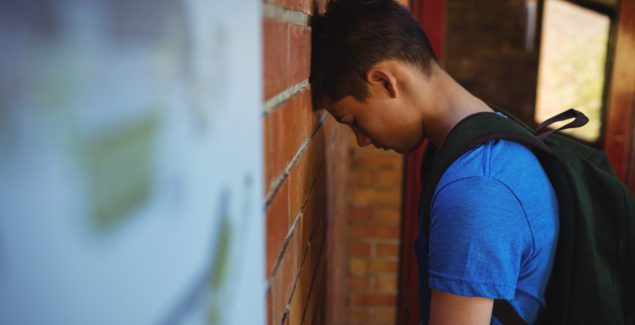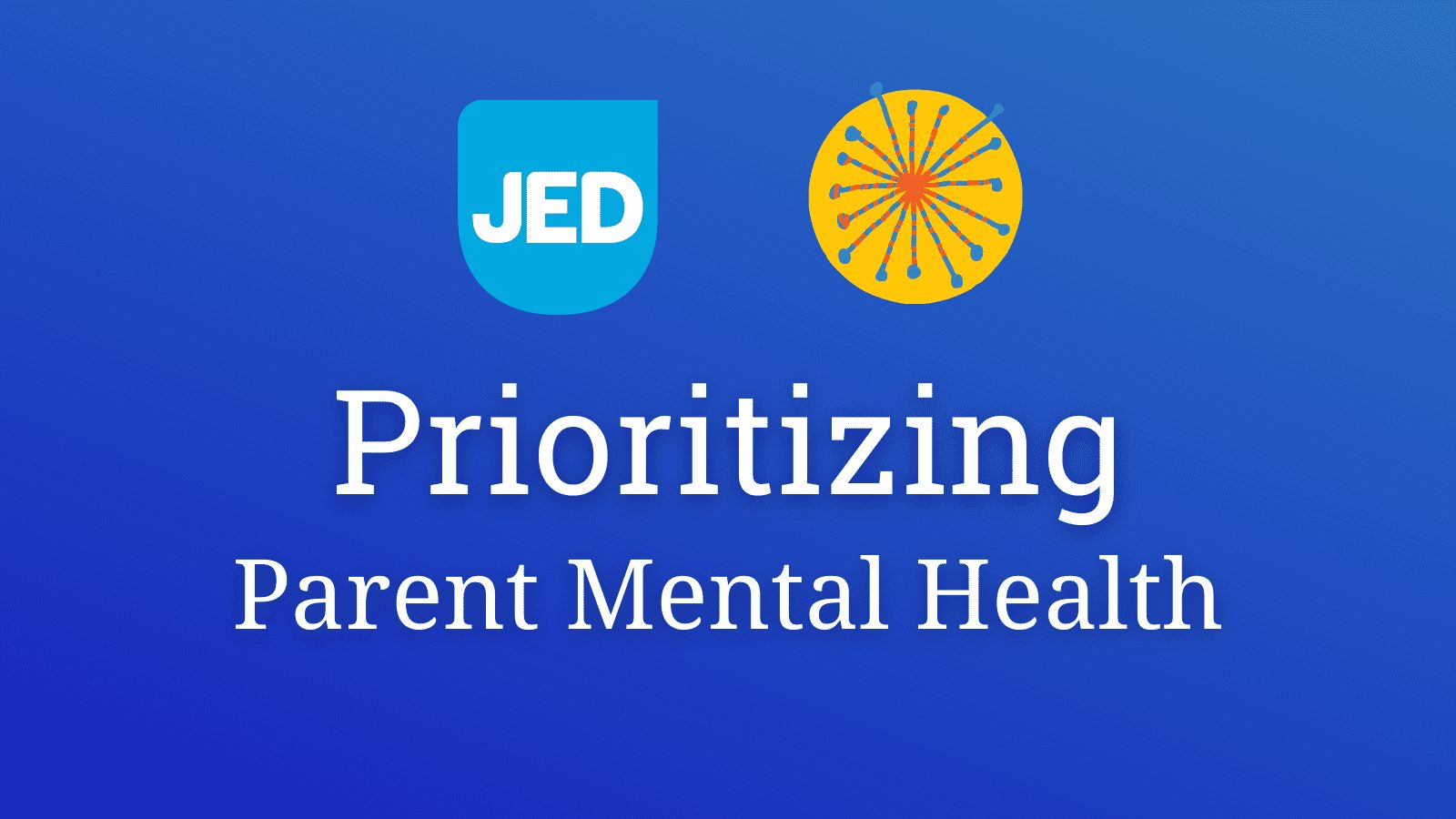What To Do If Your Child Is In Crisis

Posted in: Parenting Concerns
Topics: Mental Illness + Psychiatric Disorders
No family chooses to be in a crisis mental health situation with their child. In all the uncertainty and intense emotions, one thing is clear – we want to keep our children safe. To do so, we need to know the following:
- What it looks like when your child is in crisis (What to Look For)
- Next steps once you’ve determined your child is in crisis (What to Do)
- Ways to get additional support (Where to Turn)
Case Scenarios
It can be really hard to know when a child is in crisis, and figuring out what to do can be even harder.
You’re headed to the checkout counter with Jackson. The shopping trip has been pleasant to this point. He’s been his usual chatty, upbeat, and jovial 3-year-old self. As you unload the groceries, his little hands grab a candy bar. You tell him, using a kind warm tone, that he cannot have the candy bar, but you have a special treat for him after dinner. To your surprise, Jackson begins to cry and scream. He hits you as you approach him to offer comfort and then falls to the floor in a full-blown tantrum. He is thrashing about and now yelling so loudly that you’re certain he can be heard in the next state over. You feel terrible and ashamed, and like a bad parent, as everyone around watches.
Kids can display a range of emotions and behaviors, so figuring out if they are in crisis isn’t always clear cut. Recognizing a child in crisis is be difficult for many of reasons. With high emotions, it can be hard to see clearly in the moment about whether it is a crisis or just a tantrum. A meltdown in the supermarket may be situational for a kid who is impulsive and has a short fuse. But, if it is related to a clinical depression, or impulsivity due to ADHD, it’s a different story. It can also be common for a parent to think, this is just a phase and and will pass soon.
Knowing when your child is physically ill and needs an urgent visit to the pediatrician is often more clear cut – and we’re often more comfortable acting in these situations than with a psychiatric emergency. But a psychiatric emergency can be life-threatening just like a medical emergency, and also requires immediate attention.
You’ve noticed that Allyssa, your 15-year-old daughter, hasn’t been herself lately. She’s become increasingly isolated, no longer hangs out with friends, and she suddenly quit the varsity soccer team. She’s been playing soccer since age 6, and there didn’t seem to be a an event that caused her to quit. Now she spends most of her time in her room, sleeping a lot, not doing her homework, and refusing to join at family meals. Over the past month, she’s been really irritable and as she grabs her bag for school, you notice small cuts on her wrist at various stages of healing. When you stop her to explore, you notice similar cuts on her other wrist, but some of these cuts are much deeper. When you ask “What’s been going on lately?” she brushes you off and says, “I’m fine. Please don’t make this a bigger deal than it is.”
Listen to a more detailed discussion about self-harming behaviors on our podcast:
Knowing whether to worry is stressful, and not knowing what to do to protect a child can be downright scary, which can make a parent panic or feel helpless. In addition, feelings of shame or embarrassment from the stigma of mental illness can be overwhelming, and navigating the system and the lack of resources for kids struggling in a mental health crisis can make a parent feel discouraged, not knowing where to turn.
Trust your gut and be kind to yourself.
While, Jackson is behaving in a manner within the realm of what is behaviorally typical for a 3-year-old – though on the extreme end – if this same behavior was happening in your 12 year-old, there would be cause for concern.
Allyssa’s behavior, however, is quite concerning and would be at any age. She is showing a dramatic change in her behavior and attitude, there’s been a decline in her functioning, and the cuts on both arms raise the real concern that she is not safe. She poses a danger to herself, engaging in self-injurious behavior.
You are the expert on your child and while Allyssa says, she is “fine,” surely, your instincts and all of the context clues are screaming otherwise, and you are right to have grave concerns about her safety.
What Is a Crisis?
A crisis is when your child is no longer safe to themself or others, or when immediate action or intervention is needed. There are distinct differences between a true crisis situation and normal but challenging behavior, and to respond appropriately, we need to know the difference. A meltdown is situational and short-lived. A crisis situation usually indicates more serious problem that needs attention. The situation usually demands all of your time to care for and keep your child safe. Another sign that your child is in crisis is they are behaving very differently than normal, or the situation seems like it is getting out of control.
Trust your instincts, trust what you see, and take shifts in their moods and behaviors seriously.
What to Look For
Here are examples of warning signs of mental health crisis:
- Suicidal thoughts and statements such as “I want to die.” Vague statements should also be taken seriously, statements such as, “I don’t want to be here anymore.”
- Making threats to harm others or themselves.
- Engaging in self-injurious behavior… cutting, burning, or any other significant bodily harm.
- Significant change in mood, such as unusual irritability, that feels kind of like a “personality change”
- Severe agitation and aggression, physical aggression, destruction of property, hostile, violent, out of control, etc.
- Hallucinations (hearing or seeing things that are not real) or delusions.
- Isolating from friends and family, not coming out of their room.
- Decreased interest in activities they used to enjoy, like sports, music, etc.
- Not tending to their daily needs – not bathing, eating too much or not at all, sleeping all day or not sleeping at all, etc.
- Sudden or gradual academic decline.
What to Do
Once you have determined that your child may be in crisis, some decisions need to be made. How you will proceed depends on several factors.
Parents. Yes, you are a resource for your child. What can you?
- Control your own anxiety. It is of utmost importance to stay in control of your emotions in order to show your child that you can handle theirs. Kids don’t want to burden or upset their parents, and if it appears that you cannot tolerate their emotions, they will not confide in you.
- Create a safe space for them to talk, and actively listen. It’s ok to ask questions but most important is to reassure them that you are here to support and help them.
- Have conversations with your child. Have conversations about their feelings and behaviors and always ask about suicide, use of substances, or other behaviors that could be very risky. Also, let them know that other kids struggle in similar ways, that there are people trained to help children and teens, and that you will get them the help they need.
- Have conversations with others. Talk with others who know your child, like grandparents, older siblings, teachers, coaches – see if they also notice a change in behavior. Get a range of views and support.
Immediate Danger. If you feel that your child’s or someone else’s life is in danger, it is an emergency. Immediate action must be taken to keep your child safe. Call 911 or go to your nearest emergency room. Do not leave them alone.
Tips for calling 911:
- Tell them that your child is experiencing a mental health crisis. This is important: there may be people trained in supporting youth during a mental health crisis that can be sent.
- ASK:”Is there is a children’s crisis team?” Similarly to above, they will be trained to help in these situations.
- Provide as much detail as possible of the situation.
Urgent (No Immediate Danger). If you are convinced that your child is not in immediate danger, and you can manage the situation, it is still an urgent matter that may need support and guidance.
- If your child is already in treatment, get in touch with their mental health clinician. They can provide guidance on what to do next, based on their knowledge of your child and the current situation.
- If your child is not in treatment, they will need an evaluation. Connecting with mental health services for children is a challenge. Consider contacting their pediatrician to serve as the gatekeeper to mental health care for children and referrals.
- There are also hotlines and text lines that provide crisis intervention services (see below, Where to Turn).
Where to Turn
This is an extremely challenging time and there are additional resources available to support your child, and your whole family, during a time of crisis.
- Suicide Hotline – The National Suicide Prevention Lifeline at 1-800-273-TALK (8255) has crisis workers to support you and are available 24/7.
- Crisis Text Line – The Crisis Text Line lets you text with a crisis counselor who is available to provide support 24/7
- Local Crisis Services – Your city or state may have crisis services that can be available to you as well.
- Online Resources – There are many online resources to guide parents during difficult times such as these. They often outline specifics on what to do when you are worried about your child.
- Providers – When in doubt, ask. Reach out to the pediatrician or family doctor for guidance. They may be able to provide guidance or offer a referral.
- Additional Resources – If your child or adolescent has struggled with a mental health concern, there is support out there for non-crisis situations, including support groups (virtual and in-person) based on your child’s situation.
- Youth Mental Health First Aid – The National Council for Mental Wellbeing offers courses for parents, youth workers, and other caring adults to learn how to identify mental health concerns in children and teens, including crisis situations, and what to do next. Many communities receive funding to make these trainings available for free.

 Share
Share Tweet
Tweet





